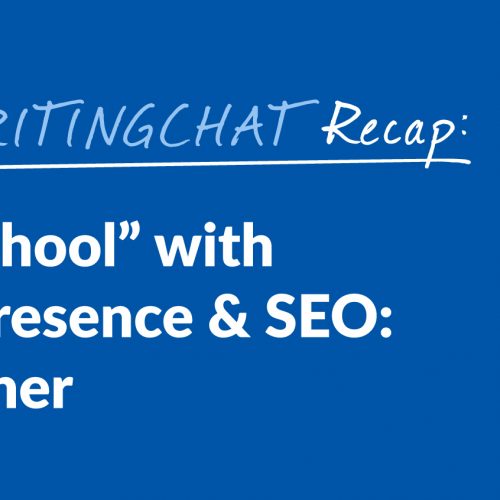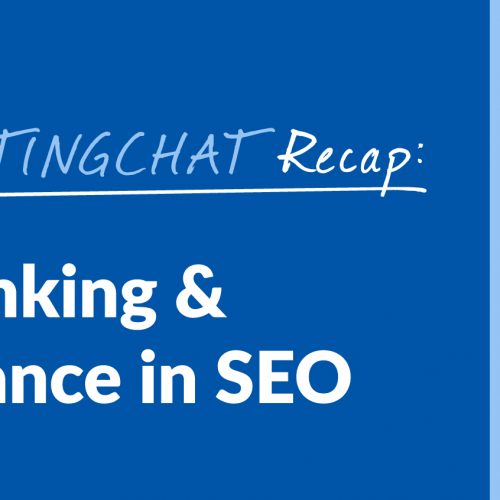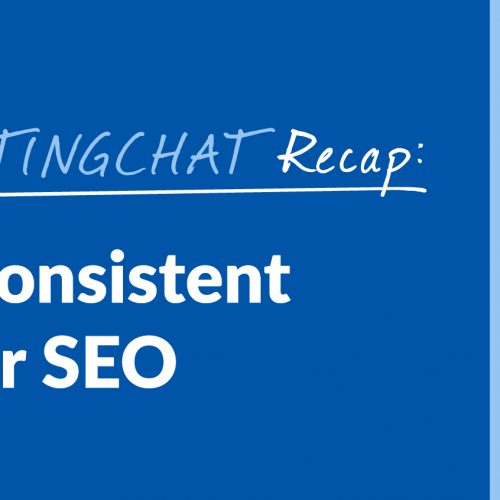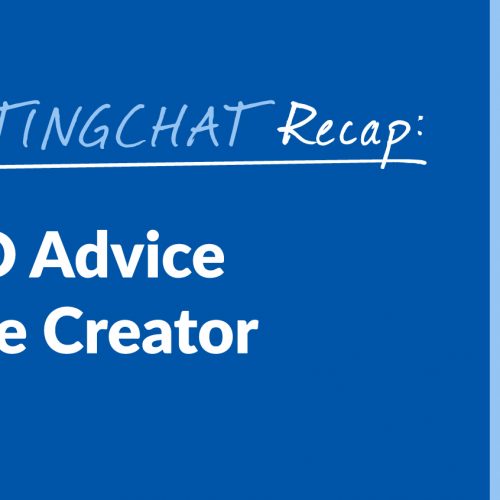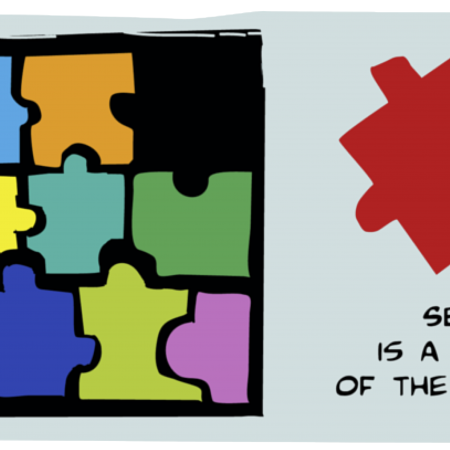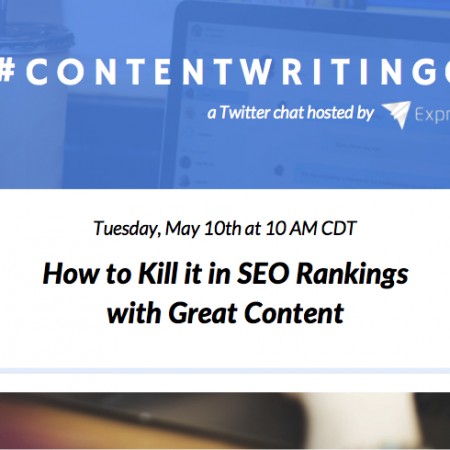#ContentWritingChat Recap: "Back to School" with Your Site Presence & SEO: 101 Refresher
This time of year, a lot of people are heading back to school. They’re stocking up on supplies, getting textbooks, and preparing for another semester of classes. However, even if you’re not heading back to school, it doesn’t mean you can’t do a little learning! For this week’s #ContentWritingChat, we decided to go “back to school” by talking about the basics of building your site presence and mastering SEO. This was another one of our community chats, where our participants are the stars of the show. And they certainly had some great advice to share! #ContentWritingChat Recap: “Back to School” with Your Site Presence & SEO: 101 Refresher Welcome to #ContentWritingChat! Today, we’re going “back to school” with a refresher on your site presence and #SEO! ? pic.twitter.com/bvY375B8qk — Express Writers (@ExpWriters) August 22, 2017 If you’re ready for a refresher course on site presence and SEO, you’re in the right place! Grab a pen and paper to take some notes and let’s dive right in! Q1: Explain the importance of SEO and how it integrates into your online marketing. To kick off the chat, we asked everyone to share why they feel SEO is important. What did they have to say about it? Here are a few responses from the chat: A1) SEO helps people find & see you online. Keywords, phrases, links, & other things help the visibility of your brand. #ContentWritingChat pic.twitter.com/v5RU365fxM — Jason Schemmel (@JasonSchemmel) August 22, 2017 As Jason said, SEO helps people find and see you online. The keywords you target in your content are just one of the ways you can boost your visibility in search rankings. A1: SEO is integrated into the content we create. We do keyword research which is used in the page title, body copy, etc #contentwritingchat — Netvantage Marketing (@netvantage) August 22, 2017 Lexie mentioned that SEO is a huge part of everything they do over at Netvantage Marketing. They conduct keyword research before creating anything. Then, that keyword is used in the page title, body copy, etc. A1: In summary, good SEO helps a brand to be searchable/more visible on search engines like Google. #ContentWritingChat — Win Shi Wong (@winshiwong) August 22, 2017 When done right, SEO helps your brand become searchable and more visible on search engines. This is why you want to conduct keyword research and choose the right keywords for each piece of content you publish. A1: #seo = how you’re put on the search engine map. If Google doesn’t know you exist, it can’t send people to your site! #ContentWritingChat — Elizabeth Greenberg (@BettaBeYou) August 22, 2017 As Elizabeth pointed out, Google can’t send people to your site if they don’t know you exist. A1. You can’t just build something and expect it to be successful. You have to make sure it’s searchable & relevant. #contentwritingchat — Bourbon & Honey (@BrittanyBrander) August 22, 2017 Brittany made a great point! You can’t build something and expect it to be successful. You can’t just publish a piece of content and expect people to find it. You have to put in the effort to optimize your content for search engines like Google. Q2: What are the basic SEO steps every blogger needs to take when publishing new content? To get started with SEO, we need to have the basics covered. So, which steps should you always keep in mind when you’re publishing a new piece of content? Here’s some advice: A2 ?? a) know your audience, their interests/questions b) research long-tail keywords within their topics of interest #ContentWritingChat — Julia McCoy ? (@JuliaEMcCoy) August 22, 2017 As Julia said, it starts with knowing your audience. Without knowing your audience and understanding their needs, you can’t create content they’re interested in. You’ll want to follow that up with keyword research to choose the right long-tail keywords for your content. A2: First, do keyword research. Use that keyword research in the page title, meta, body copy, but do so NATURALLY. #contentwritingchat — Netvantage Marketing (@netvantage) August 22, 2017 Lexie also knows that keyword research is an essential beginning. The keyword you choose for a piece of content will be used in the page title, meta description, and throughout the body copy. However, as she pointed out, you should always incorporate the keyword in a way that’s natural. A2: Pay attn. to what the target audience is talking about. What are their pain points/FAQs. Use that to drive content. #ContentWritingChat — Flying Cork (@flyingcorkpgh) August 22, 2017 Choosing the right keywords goes back to paying attention to your audience. Your content should address their pain points and the questions they’re asking. A2. Gather insights: keywords people are searching for and conversations they are having. (1/2) #contentwritingchat — Bourbon & Honey (@BrittanyBrander) August 22, 2017 Brittany said you want to go for the keywords people are searching for. The right keywords are going to help you rank higher in search results. A2 I’ve always found this infographic as the simple way. But there’s more to it than just this. #ContentWritingChat pic.twitter.com/VAbzPzq1NF — Tony Stephan (@OmnipoTony) August 22, 2017 Tony shared a helpful infographic with some tips that are important to keep in mind! Q3: How can you make sure you’re speaking to the right audience in your search optimized content? Another priority is to make sure you’re reaching the right audience with the content you’re publishing on your website. After all, you don’t want to risk attracting all the wrong people to your site. Here’s how to make sure you reach the right people: A3) Audience & keyword research. Know who you want to reach, then research the terms/words they associate with most! #ContentWritingChat pic.twitter.com/ub4qhz80lS — Jason Schemmel (@JasonSchemmel) August 22, 2017 Audience and keyword research is essential here. As Jason said, you need to know who you want to reach and then research the terms and phrases they’re searching. This will help you write the content that targets your ideal audience. A3. Do research & create a persona … Read more
